The Stewart Poets of Lochearnhead
Poetry, like music, has always been an important part of Highland culture in Scotland.
Sarah Jane Stewart (1839-1920) and her brother John Joseph Smale Stewart (1834-unknown) from Lochearnhead, Balquhidder, Perthshire, Scotland were orphaned in their teens and channelled their life experiences and feelings into poetry. They were both published in several local collections of works by accomplished Perthshire poets.
Soldier’s Orphans
Sgt. John Stewart, Sr. (1791-1855), was a Highland soldier born at Bridge of Teith near Doune in Kilmadock parish, Perthshire, Scotland. His family originated 20 miles to the north at Ardveich at the foot of Glen Beich on the north shore of Loch Earn on the boundary between Balquhidder and Comrie parishes. They belonged to clan Sliochd Iain Dubh Mhor, a cadet branch of the Stewarts of Ardvorlich, the senior branch of the Stewarts of Balquhidder. John carried the name of his great-grandfather, John Dubh Mhor Stewart of Dalveich, an illegitimate son of Maj. James Beag Stewart, 2nd of Ardvorlich.
John served in the Napoleonic Wars and was later stationed in Ireland where he met and married his wife, Sarah Margaret Smale (or Small) (1805-1854). They began their family in Ireland and, upon John’s discharge from the army, they returned to his home in Balquhidder parish and resided at Lochearnhead, just a short walk from his ancestral home at Ardveich.
John was something of a favourite of his clan chief, William Stewart, 8th of Ardvorlich, who secured for him a position as a police sergeant and inspector. With his police salary and military pension, he was able to live out his life comfortably.
The 79th Cameron Highlanders
John Stewart’s regiment is not recorded, but his cousin, Robert Stewart in Ardveich, served in the 79th Cameron Highlanders who fought in the Napoleonic Wars (1793 – 1815). The movements of the 79th match with what is known of John’s service. He served in St. Helena during Napoleon’s captivity and later in Ireland.
In 1793-94, the 79th were stationed in Ireland and England, then they were deployed to Belgium to fight against Napoleon at the Battle of Flanders. In 1795 they were deployed to the West Indies for two years, then back to England, and to France. In 1801, they were sent to Egypt to stave off French control of the route to India. Then to Menorca in Spain, Portugal, Denmark, back to France. After Napoleon’s abdication in 1814, they were stationed in Cork, Ireland. From there it was back to Belgium in 1815 to battle a returned Napoleon and finally to France for the defeat and capture of Napoleon at the Battle of Waterloo. They remained in France until 1818 after which they were deployed for home service. For John, home service was presumably in Ireland, perhaps back in Cork.
John Stewart and Sarah Smale had eleven children, however, only the names and whereabouts of some of them are known. Sarah died in 1854 and her husband, Sgt. John Stewart Sr., died a year later in 1855, leaving their children orphaned, ranging in ages from 26 to 10 years old. The older siblings appear to have stepped in to look after the younger siblings. Daughter, Sarah, describes them as being unable to continue living in their parents’ former home.
Of their children:
Eldest daughter, Mary Ann Stewart, had an illegitimate son, Michael, by an unknown man and then married William Rattray, a railway porter from St. Ninians, Stirlingshire. They had several children of their own and took in Mary Ann’s younger sisters, Isabella and Helen. John Jr became a poet and a sailor and travelled the world before finally settling in New Zealand with his younger brother, Alexander (a.k,a. “Abel”), where he was a farmer, a gold prospector, and finally a respected school teacher. His poetry invokes images of New Zealand and implies a sympathy for the plight of exploited indigenous Maori peoples. Middle daughter, Sarah, also became a poet and worked as a household servant before marrying another poet, John Hyslop, known as “The Postman Poet.” Their poetry and full biographies are presented below.
The Poetry of Sarah Jane Stewart
Oor Hoose at E’en
by Sarah Jane Stewart
Oh, what merry times we hae,
In oor hoose at e'en;
Ilk ane is blythe and gay,
In oor hoose at e'en;
Tho' the wintry win's may howl
And the storm-cluds darkly scowl,
And like hung'ry demons growl,
Roun' oor hoose at e'en.
When oor gudeman comes in To oor hoose at e'en, Tired o' fit, wi' drookit skin, To oor hoose at e'en. See the willin' han's and feet, To get in-ower their faither's seat, And for dry claes change the weet, In oor hoose at e'en.
Syne the cheery cup o' tea
In oor hoose at e'en
Mak's a' care and sorrow flee
Frae oor hoose at e'en;
Wi' the kindly jokes and smiles,
And the bairnies' winsome wiles,
Aye the langest nicht beguiles
In oor hoose at e'en.
When, wi' hangin' sleepy head,
In oor hoose at e'en
Ane and a' prepare for bed,
In oor hoose at e'en,
Oh, there's muckle love and bliss
In ilk wee bit darlin's kiss;
E'en their fauts we a' wad miss
In oor hoose at e'en.
Then awa wi' sordid joys
Frae oor hoose at e'en;
For there's pleasure that ne'er cloys
In oor hoose at e'en;
Fain are we it and be kent
That we're wi' oor lot content,
And the blessin' Heaven has sent
To oor hoose at e'en.
Ford, Robert. The Harp of Perthshire. A Collection of Songs, Ballads, and other Poetical Pieces chiefly by local authors with notes explanatory, critical, and biographical. Paisley and Paternoster Square, London: Alexander Gardner, Publisher to her Majesty the Queen, 1893, p. 313.
The Sunny Side
by Sarah Jane Stewart
Draw in your chair, my ain gudeman,
and sit ye doon by me,
And a' the oors recount again
We spent in youthfu' glee.
In fancy we'll gang roun' ance mair,
Each auld familiar scene;
We'll walk thro' Bellfield's woods sae fair,
Or rest us by the Dean.
In thocht we'll hear each croodlin' doo,
Ilk merle and mavis sing;
And there, gudeman, we will renew
Oor vows made in life's spring.
When wandrin' down by Fairy Hill
Whaur Irvine's stream rins wide,
Yer pauky whisper haunts me still,
"We'll tak' the sunny side."
That wordie cheer'd when grief and care
Oor youthfu' looks did mar,
And smoothed oor broos when wrinkled sair
Wi' mony an inlaid scar.
Tho' noo oor pows are whitenin' fast,
Wi' warldly toil and strife,
We ha'e Hope's anchor aye to cast
Thro' a' the storms o' life.
Oor hearts we'll free frae ilka clog,
Tho' bluid rins thin and cauld;
And blythely to life's end we'll jog,
nor mind tho' we grow auld.
Tho' Sorrow's cloud may o'er us loom
Or Death itsel' betide,
Yet we can look ayont the tomb,
And "tak' the sunny side."
Ford, Robert. The Harp of Perthshire. A Collection of Songs, Ballads, and other Poetical Pieces chiefly by local authors with notes explanatory, critical, and biographical. Paisley and Paternoster Square, London: Alexander Gardner, Publisher to her Majesty the Queen, 1893, p. 314.
The Poetry of John Joseph Smale Stewart
The Wounded Soldier
by John Joseph Smale Stewart
On the banks of the Ganges, far, far from the shore, That claims for her costume the tartans he wore, A soldier, all bleeding, had sank on the ground, Where many a comrade lay dying around. Pale, pale was his cheek, but it was not from fear, For deep in his side was the mark of a spear; But the warrior, all wounded, forbore to complain, Till he thought of the friends he might ne'er see again.
Is it thus! is it thus! Ah! my race is then run; Farewell, thou green earth, and thou bright setting sun; Farewell to each hope that my heart had in store; The morning may come , but 'twill find me no more. My father, farewell, and my mother, ah me! Oh! mother, dear mother, I'm woeful for thee; Fond hearts, but for ye I could die without pain, But I ne'er shall see you, nor Balquhidder again.
Ye scenes of my childhood, Balquhidder, farewell; Adieu to the mountain, adieu to the dell; My blessing is yours, -- all I can bequeath, For no more, ah! no more shall I tread on your heath. Farewell to the mist, the sunshine the shade; Farewell to the rock, to the lake and the glade; They may send back their echoes to answer the strain That I never shall hear in Balquhidder again.
Dear father and mother, Oh, weep not, nor sigh, We will meet in a happier realm on high; Yes, I'll meet you again in a region of bliss, In a world that is brighter and better than this. Farewell then, dear parents, I'll see you no more, For my sufferings and sorrows will soon be all o're In a far distant land I shall sleep with the slain, For I'll ne'er see my native Balquhidder again.
While thus musing he lay, he could hear from afar
The tumult and din of the unfinished war;
He raised himself up, for now swelled on his ear
The token of vict'ry, a loud British cheer
"Victory, victory, hurray!" thus in answer he cried,
Then o'erpowered by the effort, fell fainting, and died;
The sun went to rest, and the night cloud amain,
O'er the hero who'll ne'er see Balquhidder again.
Ford, Robert. The Harp of Perthshire. A Collection of Songs, Ballads, and other Poetical Pieces chiefly by local authors with notes explanatory, critical, and biographical. Paisley and Paternoster Square, London: Alexander Gardner, Publisher to her Majesty the Queen, 1893, p. 303.
The Lay of the Wakamarina
By John Joseph Smale Stewart
The thick mists of morning hung over the hill,
And the leaves were all wet with the yesterday's rain
That had swollen the river and flooded each rill,
And had formed a hundred small pools on the plain;
I stood by the Wakamarina, and gazed,
While turbid and dark it sped past me amain;
With each surge of her billows methought that she raised
A voice that was ever thus heard to complain:
Oh, the day of my glory's for ever gone by,
For the stranger has come and has camped by my side,
And my food is now tinged with a dark, muddy dye,
And gone is the beauty that once was my pride.
How transparent I roll'd; Oh how cheerful and clear;
How my waves rippled bright as I bounded along;
And the birds of the forest down in me did peer,
As they wakened the wild woodland echoes to song.
Yes, the wild birds of night through the woods sent their cry,
And the pigeon here amorously coo'd to his love.
And sweet warblers went up day by day to the sky,
From the gay feathered tribes that then gladdened the grove.
But they've cut down the wide spreading boughs overhead
That made beauteous my path, as I slowly strayed on;
Or on my brilliant brow, as I joyously played,
Mingled glimpses of shade with the beams of the sun.
Now far from my margin the pigeon has fled,
Or has fallen 'neath the ruthless destroyer's dread gun;
They have torn up my banks, and they've rifled my bed.
And they riot around on the wealth they have won,
They have robbed me of treasure, of beauty esteem;
They have spoiled me of all that was dear to my name;
Now I wander along -- a dark, slimy, dull stream,
To hide in the arms of the ocean my shame
Edwards, David Herschell. One Hundred Modern Scottish Poets: With Biographical and Critical Notices. Brechin: D. H. Edwards Publishing, 1884. Vol. 7, p. 62
“The Wakamarina River is a river of the Marlborough Region of New Zealand’s South Island…. In 1864, gold was found in the river near Havelock, and soon 6,000 men were working in the area. The gold rush did not last long and most miners moved on to the West Coast Gold Rush.” (https://en.wikipedia.org/wiki/Wakamarina_River)
Oh, Do Not Sigh
by John Stewart
Oh, do not sigh my darling, though the seas between us roll,
Oh, do not sigh my darling, though the future's wrapt in gloom,
Though the earth revolve between us, as it does 'tween pole and pole,
There still is hope for other, and for happier days to come.
The same sky still is o'er us, the same sun still shines above,
And our nightly gaze may turn to the same moon's tranquil beam,
Thy image still is in my heart, impressing marks of love,
And my soul soars forth to visit thee in fancy's happy dream.
Though I wander o'er the ocean, still my heart is on the shore,
Though the gale is howling round me, and the foam is on the sea,
As I listen to the billows, there is music in their roar,
And my heart is ever happy, for my soul is still with thee,
Though stern fortune may divide us, as our ship divides the foam,
As the land divides the ocean, as the rock divides the stream,
Yet still there is a time to meet, however far we roam,
And still my soul will visit thee in fancy's happy dream.
Edwards, David Herschell. One Hundred Modern Scottish Poets: With Biographical and Critical Notices. Brechin: D. H. Edwards Publishing, 1884. Vol. 7, p. 63
The Flower of Wanaka
by John Stewart
Rough though Otago’s breezes blow,
A gentle plant they fan,
As fair as any clime can show,
To bless the eye of man.
There ne’er in garden, or in bower,
That mortal ever saw,
Did grow a bonnier mountain flower
Than grows by Wanaka.
Her step is noiseless in its fall
As fairies in the dawn,
She’s kind as she is beautiful,
And graceful as the fawn.
It seems as Nature’s richest dower
Did fall by Nature’s law
Upon the bonny mountain flower
That blooms by Wanaka.
Like music o’er the waters borne,
Or like some beauteous bird,
That loves to wake the summer’s morn,
Her gentle voice is heard.
The lovely handwork of that power
Who holds mankind in awe,
Is the bonny, bonny mountain flower
That blooms by Wanaka.
Oh, never may the worm of grief
To thee its blight impart,
Nor leave its track upon thy leaf,
Its canker in thy heart;
May heaven its blessings on thee shower,
And goodness ever draw
Sweet incense from the mountain flower
That blooms by Wanaka.
Edwards, David Herschell. One Hundred Modern Scottish Poets: With Biographical and Critical Notices. Brechin: D. H. Edwards Publishing, 1884. Vol. 7, p. 64
Wanaka is a town in the Otago region of the South Island of New Zealand.
Sarah Jane Stewart
Sarah Jane Stewart. A sister of the subject of the foregoing notice (John Joseph Smale Stewart), was born at St. Fillans in the autumn of 1845 (sic, baptism records confirm she was born in 1839. Census records show that she started fudging her age in her early 30s). With a view to fitting her for a professional career, Sarah received the full educational course of the local school. Her mother dying suddenly, however, and her father following her into the silent land in little more than a year thereafter, her prospects in life were changed, and she had to go out to service. In the winter of 1877, she became the wife of the late Mr. John Hyslop, the well-known Kilmarnock postman-poet; author of “The Dream of a Masque and Other Poems,” and her wedded career was one of unbroken happiness. Since she was fourteen years old Mrs. Hyslop has cultivated, as opportunity afforded, a natural and true poetic gift, and has written many tender heart-warming poems and songs, which have been widely circulated and esteemed.
Ford, Robert. The Harp of Perthshire. A Collection of Songs, Ballads, and other Poetical Pieces chiefly by local authors with notes explanatory, critical, and biographical. Paisley and Paternoster Square, London: Alexander Gardner, Publisher to her Majesty the Queen, 1893, p. 512.
John [Hyslop] was twice married. The first marriage took place in the summer of 1863, when he was in receipt of 11s 6d per week, but odds and ends brought in a shilling or two more. Six children were born to them, three girls and three boys; of whom two girls and one boy died before their mother left his side to join them in the Better Land. After fourteen years of wedded life filled with sunshine and shadow; with smiles and tears; with many struggles and many triumphs, who who had been a loving mother and a good and loyal wife, died in the summer of 1877. Feeling his household getting into disorder, he married again in December of the same year, Sarah Jane Stewart, who had been spoken of to him by his first wife weeks before she died as the one she would like as her successor. Alluding to her, John wrote: “Clever, warm-hearted, and impulsive, widely read, with a magnificent memory, in many things our tastes and feelings are identical, and she, like myself, has been for years a maker of verses, some of which have appeared in various journals. Some of her lines are inscribed along with Surfaceman’s, and others in the Poet’s Album in Kilmarnock Burns’ Monument.”…
Mrs. Hyslop was born in Saint Fillans, in Perthshire, beautifully situated at the foot of Loch Earn. Her father, John Stewart, was a soldier in his youth, and served in that capacity for twenty-four years, the greater part of that time being spent abroad. He was in St. Helena during the whole time of Napoleon’s captivity. He married before leaving the army, but Sarah Jane was not born until after his discharge, and after he had returned to Loch Earn. She was born about the Autumn of 1845 (sic). Related to the Stewarts of Ardvorlick (sic), its then proprietor, unsolicited, procured for her father a police inspectorship at Loch Earn Head, which situation he held until within a few months of his death. With his salary as inspector and a sergeant’s pension the father was able to bring up his family of eleven children without the struggle experienced by many parents with large families. Sarah Jane received her early education at Loch Earn Head, and resided there until she had reached the age of twelve years, when she was sent to the Normal School, Glasgow, having early displayed special aptitude for learning. Before she had reached her seventh year she could repeat several old Scotch ballads, and at the age of nine could repeat the Psalms from the 1st on to the 24th without a mistake, and also every line of the 119th. Not long after entering the Normal her mother died, and in a little more than a year afterwards her father was laid in the grave. Writing of this period, she says, “All joy seemed blotted out of my life. I had then to be taken from the Normal School, to which I had been sent after my mother’s death, and nothing remained for all of us who were able but to turn out to service. My eldest brother had gone to sea as admiral’s clerk, and within a year or two after these sad events, the home we loved so well was for ever closed against the boys and girls who enjoyed and played around its blythesome hearth. After serving in different capacities in several well-to-do families, I was married to John Hyslop in the winter of 1877.” As early as her fourteenth year she commenced writing verses, and throughout her life poetry has been the solace and refuge of spare hours. She has said: “My verses are not like these written by long-handed men, for I just make a dash at them, and scarcely ever given them a second thought or look.” Mrs. Hyslop sometimes after the decease of her husband got a situation with a family in Stirling, and there she is now, feeling comfortable and at home. Like John, Mrs. Hyslop was a frequent contributor for years to various journals and was successful in different competitions. The People’s Friend, the People’s Journal, Dundee Weekly News, and the Kilmarnock papers from time to time published poems and stories from her gifted pen.
Johnston, William, editor. Memorial volume of John Hyslop, the postman poet. Kilmarnock: J.C. Motson, “Herald” Office, 1895. pp. xi, xv, xvi.
The above biographies of Sarah indicate that she and John’s first wife were acquainted with each other prior to his first wife’s death. It’s possible that Sarah was working as a household servant to John Hyslop before his first wife died.
In 1841, at age 1, Sarah was residing in Lochearnhead, Balquhidder, Perthshire, Scotland with her parents and siblings, Catherine, John, and Isabella.
In 1851, at age 10, Sarah was residing in Lochearnhead, Balquhidder, Perthshire, Scotland, with her parents and siblings, Mary, Isabella, Alexander and Helen. She was a student.
In 1861, at age 20, Sarah is believed (but not confirmed) to be residing in West Lundie (Braes of Doune), Kilmadock, Perthshire, Scotland, employed as a dairymaid in the household of Alexander Dewar.
Sarah has not been confidently identified in 1871.
In 1881, at age 36, Sarah was residing at 2 St. Marnock Place, Kilmarnock, Ayrshire, Scotland, with her husband John Hyslop, and his children from his first marriage, John, Agnes and Jane. Sarah was a letter carrier’s wife.
In 1891, at age 45, Sarah was residing at 5 Mill Lane, Kilmarnock, Ayrshire, Scotland, with her husband, John Hyslop, and 2-year-old grandson, Alexander.
In 1901, at age 55, Sarah was residing at 28 India Street in Edinburgh, Midlothian, Scotland, widowed and employed as a domestic servant to Margaret Galbraith.
Sarah Jane Hyslop, widow of john Hyslop, former Postman, died 15 January 1920, 7 Bayne Street, Stirling, age 80 years. Daughter of John Stewart, sergeant of police (deceased) and Sarah Margaret Stewart nee Lowell (sic) (deceased). Informant: Grace Stewart, grand-niece, 6 Bruce Street, Stirling.
John Joseph Smale Stewart
John Joseph Smale Stewart. The son of a Perthshire soldier, was born about 1838 while his father was with his regiment in Ireland, but was brought up at Lochearnhead where his father, on retiring from the army, wrought for a time as a gardener, and latterly occupied the position of police inspector for the district. At the age of sixteen he went to serve on her Majesty’s Ship, Cumberland, then under command of Captain Seymour, and, after cruising for some time, sailed for Bermuda, and thence to Halifax and Nova Scotia. He took part in the Russian War, and, after being discharged, returned home for a brief season. Subsequently, after voyaging to various parts of the world, he took a farm in Australia (sic, New Zealand), and for some years, along with a brother [Alexander], was a successful farmer. Ultimately he settled as a schoolmaster at Tamarara, near Hooker’s Bay, where he still resides, enjoying much popularity as a teacher and a citizen of the world.
Ford, Robert. The Harp of Perthshire. A Collection of Songs, Ballads, and other Poetical Pieces chiefly by local authors with notes explanatory, critical, and biographical. Paisley and Paternoster Square, London: Alexander Gardner, Publisher to her Majesty the Queen, 1893, p. 512.
JOHN JOSEPH SMALE STEWART. The son of a soldier and brother of the poetess, Mrs. Hyslop, sketched in our series, was born about 1838 while his father with his regiment in Ireland, but was brought up in Lochearnhead where his father removed after leaving the army. He was a great favourite with his teacher and they used to spend hours together and reciting poetry after the school was dismissed in the evening. His poetical sister was years his junior and the kindred spirits were deeply attached to each other. She was the companion of his rambles and she speaks with pardonable pride of the time when he first confided to her the secret that he had made a song. She looked upon him with other eyes and dreamed of something great in store for her poet brother. At the age of sixteen he went to serve on Her Majesty’s ship, Cumberland, then under command of Captain Seymour and, after cruising for some time, sailed for Bermuda and thence to Halifax, Nova Scotia. He took part in the Russian War and after being discharged returned home to find that his dearly loved mother’s chair was vacant. After several voyages to various parts of the world, he took a farm in Australia (sic, New Zealand) and for some years, along with a brother (Alexander), was a successful farmer. He was seized with the gold fever, sold his farm, and ultimately we find him a schoolmaster at Tamarara near Hooker’s Bay where he has proved himself a successful and popular teacher. We have seen several specimens of Mr Stewart’s poetical epistles — a form of correspondence he generally adopts in writing home to his friends, and these are neatly expressed very entertaining and instructive and show the observant eye and warm heart. A vein of reflective melancholy runs through many of his poems. These show him to be a keen and intelligent student of Nature while his songs are musical and felicitous in sentiment.
Edwards, David Herschell. One Hundred Modern Scottish Poets: With Biographical and Critical Notices. Brechin: D. H. Edwards Publishing, 1884. Vol. 7, p. 61
The above biographies indicate that John settled in Australia with his brother Alexander (also known as Abel). However, in the 1800s, the term “Australia” was often used generically to include New Zealand, in much the same way as “America” was used to refer to both the USA and Canada in that time period. The locations mentioned in John’s poetry are all found on the South Island of New Zealand. Furthermore, Wakamarina was the location of a gold rush in the 1860s-1870s on the South Island of New Zealand, which fits with John’s biography. It is our assertion that John and Alexander settled on the South Island of New Zealand and not in Australia-proper.
John and Alexander are believed to have been still living in Lochearnhead at the time of their parents’ deaths in 1854/55. They are not found in the 1861 census and are believed to have begun their global trek by that point. The earliest biography of John was published in 1884 and speaks of him as already having been a farmer, a gold prospector and a teacher of good repute by 1884, suggesting he had been in New Zealand for several years by that point.
We have no further records of John or Alexander in New Zealand. We do not know if either of them married or had children or where exactly they lived or when they died.
So far as we can tell, neither of the Stewart Poets of Lochearnhead, John or Sarah, had any descendants.


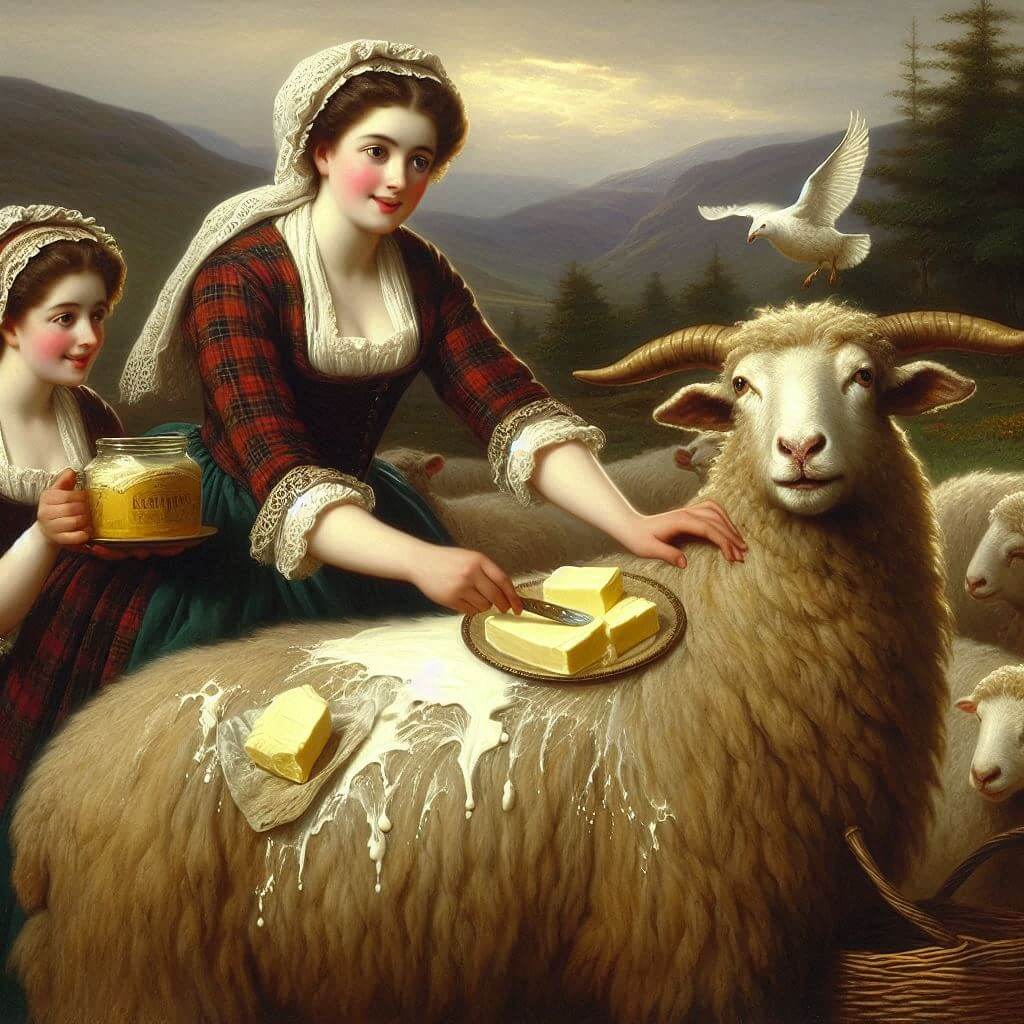

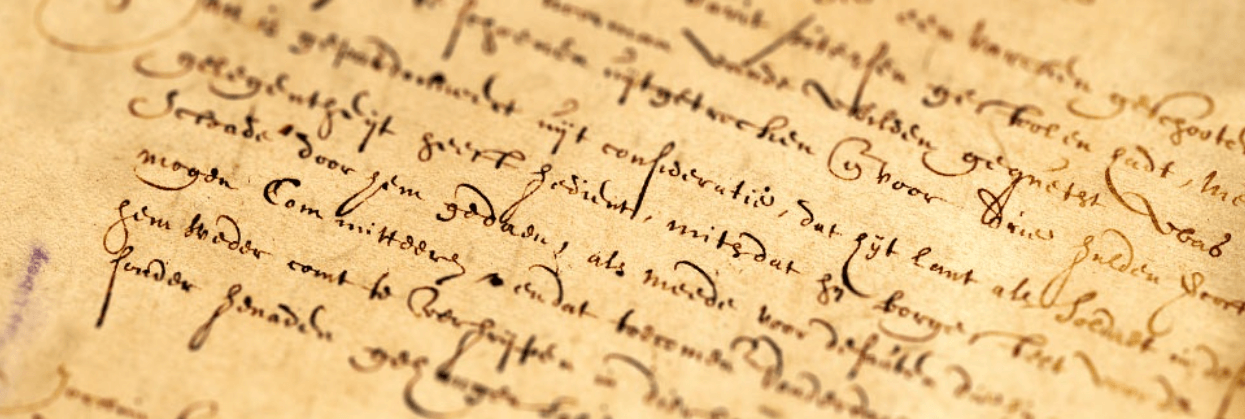
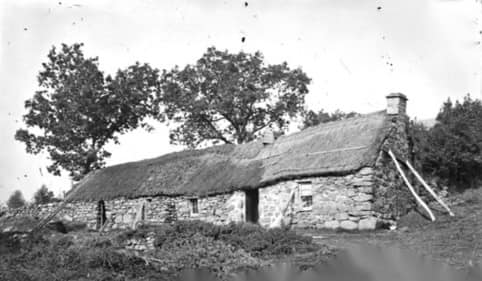
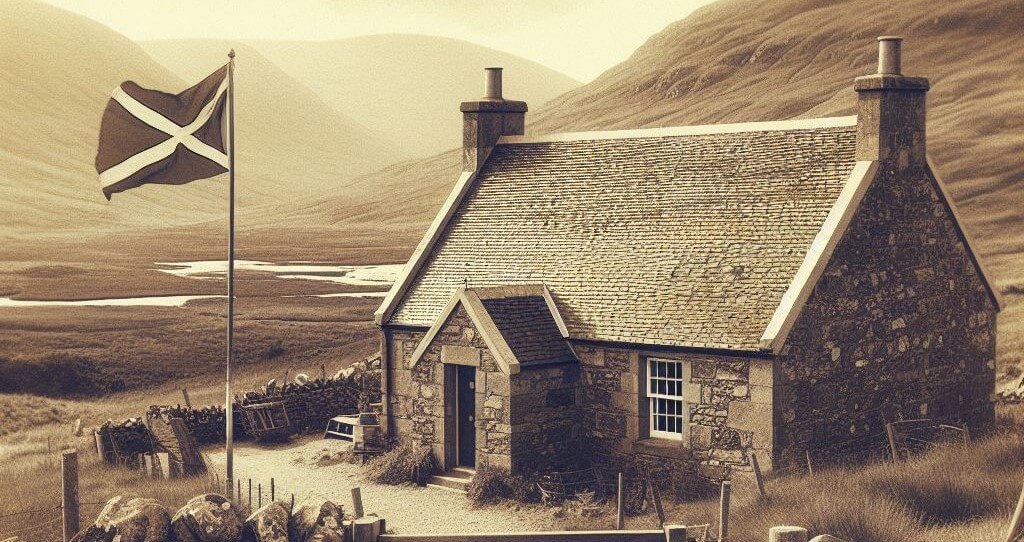
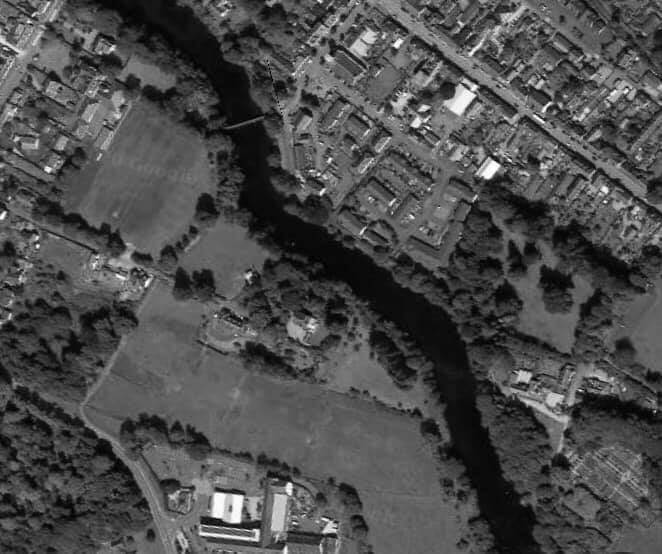
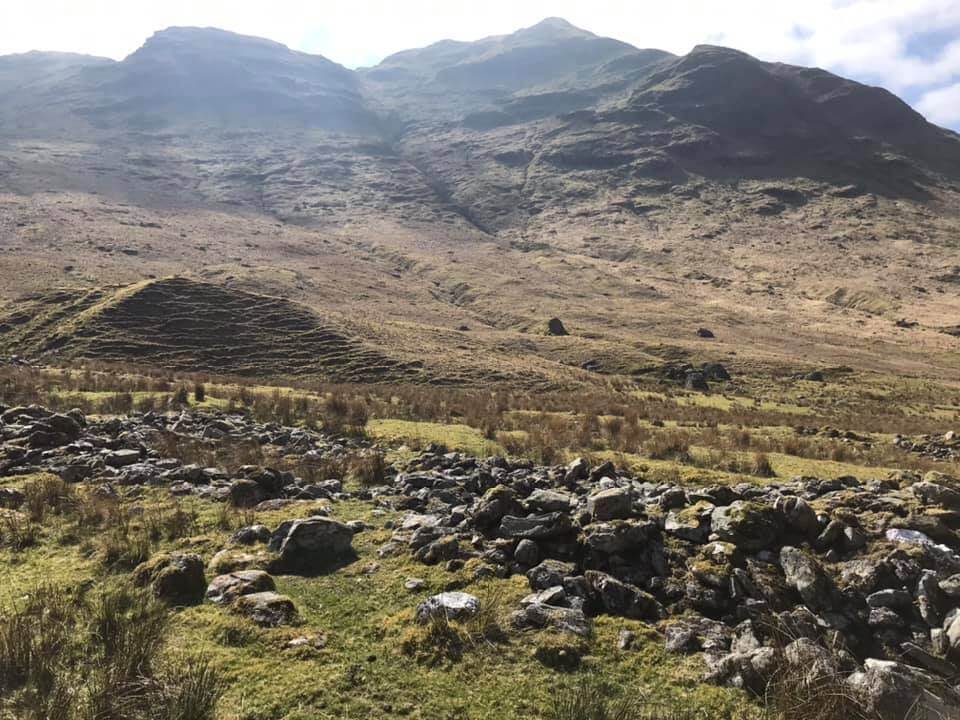
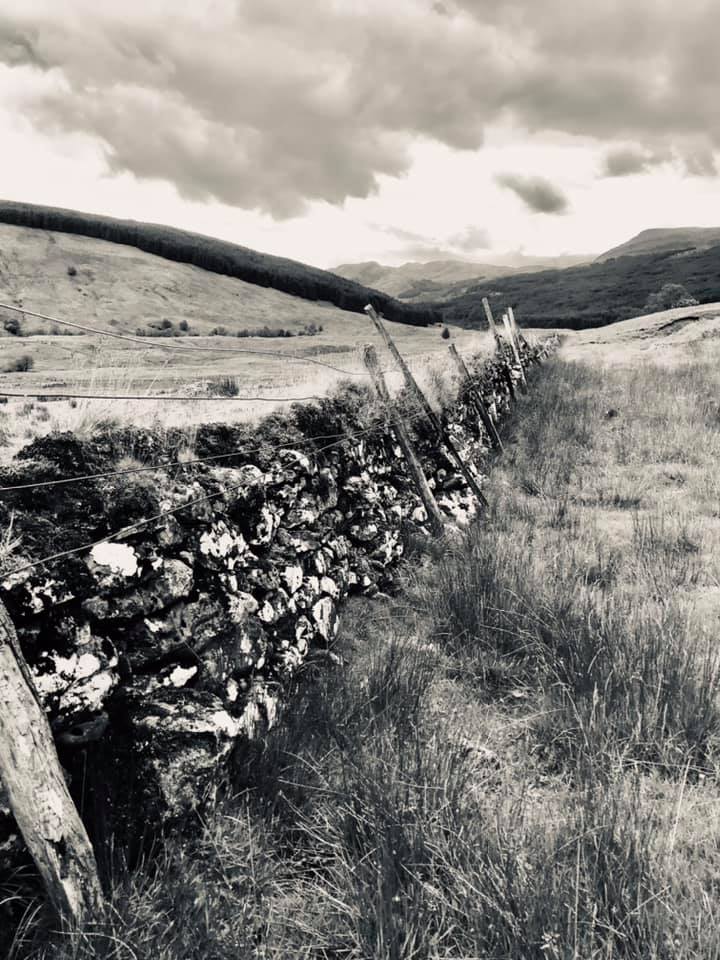
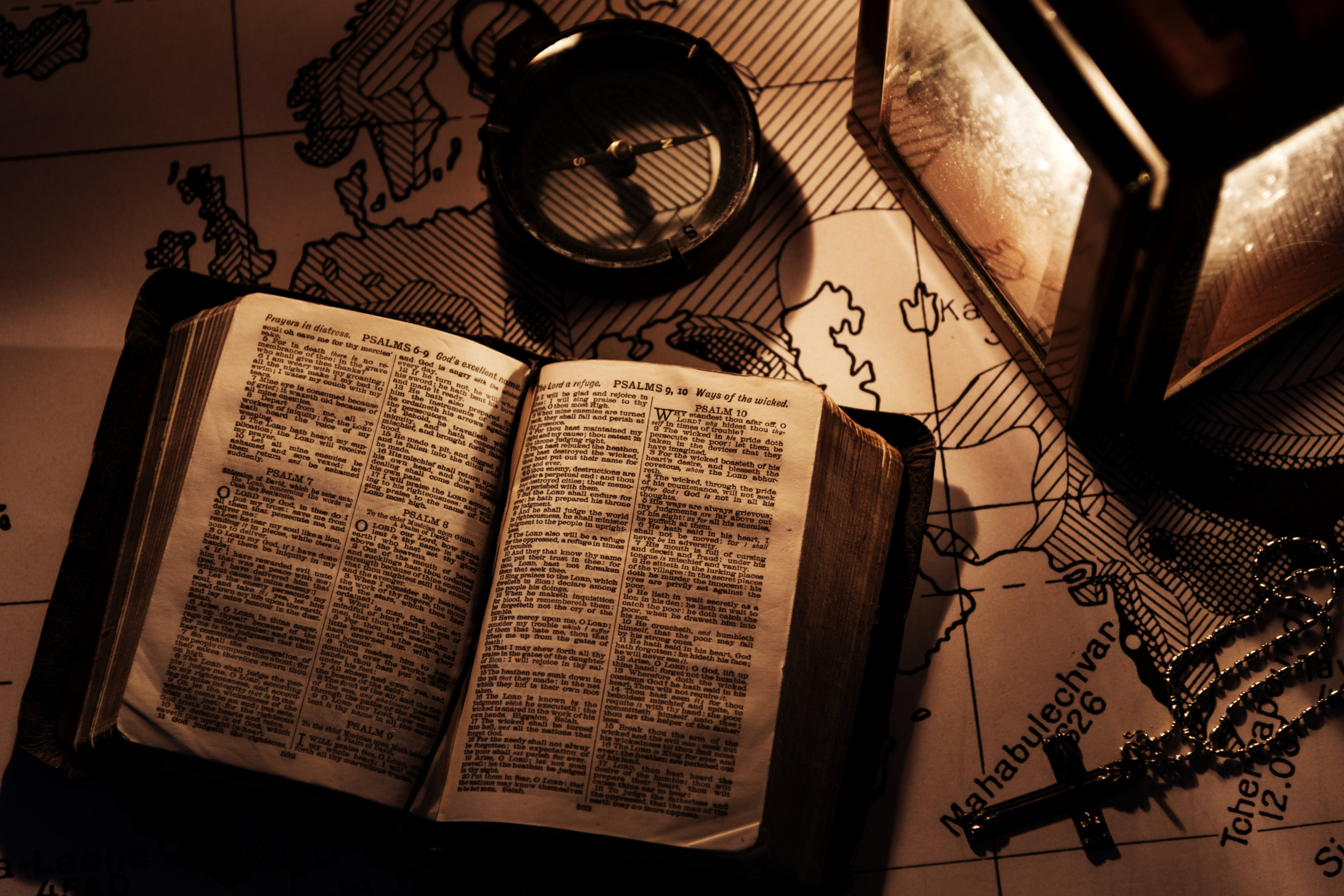
0 Comments